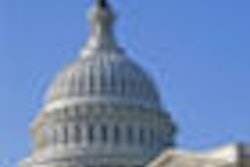
New legislation introduced in Virginia could prevent insurance companies from offering discounts on uncovered dental procedures to their customers. Two bills introduced by the Virginia Dental Association (VDA) to address this issue passed the state House and Senate by a wide margin last week.
“The cost will shift to the group that can afford it the least.”
— Terry Dickinson, D.D.S., executive
director, Virginia Dental
Association
"No contract between a dental plan and a dentist or oral surgeon for the provision of healthcare to patients may establish the fee or rate that the dentist or oral surgeon is required to accept ... unless the services are covered services under the applicable dental plan," the bills state.
Both pieces of legislation were passed on to the full floor by the House and Senate Labor and Commerce committees. Both bills passed by a resounding majority: House Bill 1263 passed by a 39-1 margin, while Senate Bill 622 passed by 93-5.
Virginia is one of 18 states pursuing similar legislation. Rhode Island is the only state that has successfully passed a law against this practice.
The trend of fee caps on uncovered procedures started in California in 2008-2009, said Terry Dickinson, D.D.S., executive director of the VDA, in an interview with DrBicuspid.com.
"Insurance companies are trying to introduce this amendment in their contracts to get a marketing edge," he said. "They are trying to set a fee schedule for procedures that are not covered, which could include treatment like implants and bleaching."
Cost transfer to the uninsured
|
States pursuing fee-capping legislation In addition to Virginia, these states are also pursuing fee-capping legislation, according to the ADA:
Arizona Colorado Hawaii Illinois Indiana Iowa Kansas Maryland Mississippi Missouri Nebraska Oklahoma Oregon Pennsylvania South Dakota Virginia Washington |
Fee capping might reduce costs for people who have dental insurance, Dr. Dickinson added, "but it will be a cost shifting, not a cost reduction, to those who don't have health insurance."
If the insurance companies ask dentists to provide discounts on uncovered procedures, the population who does not have health insurance ... and that is a high percentage in Virginia -- will have to pay much more, he said.
"The uninsured pay retail, while those who have insurance pay wholesale," Dr. Dickinson said. "The cost will shift to the group that can afford it the least."
Also, insurance companies can't tell dentists what they can charge for a certain procedure without knowing anything about the overhead costs involved, he added. If a veneer costs a practice $1,000 and the dentist has signed a contract that allows the insurance company to set the fee at $600, for example, it may force dentists who use high-quality materials to choose cheaper alternatives to cut costs.
"How can they [insurance companies] set a single fee that they call reasonable when every practice is a different business?" questioned Dr. Dickinson. "How will they make that determination?"
If insurance companies think the service is important, they should cover it, he concluded.
Opposition to the legislation
Meanwhile, a coalition of organizations -- including Delta Dental, Aetna, and Anthem -- is opposing the legislation. The coalition warns on its Web site that the new legislation could mean bigger bills at the dentist's office.
"The VDA says that it wants to prevent insurance carriers from negotiating discounts for 'non-covered' services," the group states on its site. "They mean services that you, the patient, pay for directly. You may not know it, but you now receive a discount off full retail charges for many dental services. If the legislation passes, these discounts will disappear, and you'll pay more, especially seniors who typically use more dental services or visit their dentists more frequently."
Delta Dental has not introduced a fee-capping amendment in its contracts within Virginia and does not have immediate plans to, said Tom Martenstein, speaking on behalf of Delta Dental of Virginia.
However, the company has placed a newspaper advertisement addressed to customers, participating dentists, and the Virginia General Assembly that explains how the VDA's proposed legislation will mean "higher out-of-pocket costs" in these "difficult times."
"Delta has portrayed in its full page ads that VDA is nothing but a bunch of money-hungry dentists," Dr. Dickinson said. "They are defaming their own providers."
Insurance companies that currently hold in-network dentists to discounts on uncovered procedures include Aetna and United Concordia.
When asked to comment Aetna sent DrBicuspid the following written statement:
"Dentists who sign up to participate in the Aetna Dental network have agreed to a set of negotiated fees. In those contracts, Dentists agree to charge these fees regardless of whether the service is a covered service under the members' plan. Prohibiting discounts for non-covered services is harmful to consumers. Aetna believes that consumers should have access to the best possible dental rates to keep their out-of-pocket costs low and avoid confusion for individuals and families."
Copyright © 2010 DrBicuspid.com



















